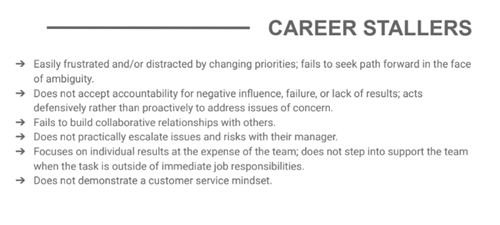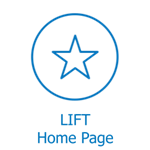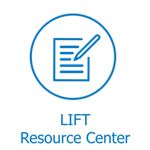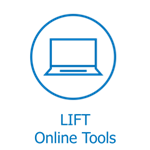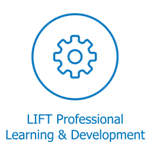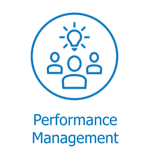
-
Announcements
Announcement Archive
-
Complete LIFT End-of-Year Self-Reflections and Evaluations by June 30 [published 5/16/2025]
The 2024-25 end-of-year (EOY) evaluation window for Leadership Investment Framework for Talent (LIFT) team members is now open (May 19 - June 30).
Team Members: Self-Reflections
- Review the LIFT EOY 2024-25: Team Member - Self Reflection Slide Deck.
- Connect with your evaluator to establish a timeline for completing and submitting your self-reflection.
- Draft EOY self-reflection using your LIFT Tracker.
- Use the LIFT Framework Self-Reflection Sentence Starter resource to help you get started.
- Submit EOY self-reflection using the link located in the EOY Eval tab in the LIFT Tracker.
- Engage in the EOY conversation with your manager to discuss your evaluation.
Managers: Evaluations
- Review the LIFT EOY 2024-25 Manager Evaluator Resource slide deck.
- Consider attending the LIFT Calibration Training 2024-25 (especially if you did not attend last year) - Register in Learning Space.
- Schedule time with your direct reports to host EOY conversations.
- Invite and encourage your direct reports to draft a self-reflection using their LIFT Tracker.
- Share the LIFT Framework Self-Reflection Sentence Starter resource.
- Draft EOY evaluations using your direct report’s LIFT Tracker and ask your direct report if they would like you to share it with them 24 hours prior to the EOY conversation to allow time for them to review it.
- Meet for the EOY conversation to discuss the evaluation. Make adjustments as needed.
- Submit EOY evaluations using the link located in the EOY Eval tab in the LIFT Tracker by June 30
-
Get Ready for the LIFT End-of-Year Performance Evaluation Window [published 5/2/2025]
The LIFT end-of-year (EOY) window is May 19 - June 30.
Information about the EOY process will be widely communicated to LIFT eligible team members on May 19th. Feel free to review this EOY slide deck now, as it provides step by step instructions for evaluators.
-
Complete LIFT Mid-Year Performance Conversations by January 31 [published 12/9/24]
The LIFT Mid-Year (MY) performance conversation window for the 2024-25 SY is Dec 9th - Jan 31. In preparation for MY conversations, LIFT eligible team members are asked to complete a self-reflection. Self-reflections enable team members to honestly self-reflect on demonstration of the LIFT competencies and progress on goals, so team members can participate more constructively in the MY evaluation conversation.
Team Member Next Steps:
- Review the LIFT Mid-Year Slide Deck
- Draft your self-reflection using the MY Eval tab in your LIFT Tracker.
- Submit your self-reflection using the link in the MY tab in your LIFT Tracker
-
- Once submitted, a copy of the evaluation will automatically be emailed to you and your manager.
- Meet for the MY conversation to discuss the evaluation: progress made on goals including areas of strength and areas for growth for each LIFT competency group.
Evaluator/Manager Next Steps:
- Schedule time to host MY conversations
- Review the LIFT Mid-Year Slide Deck
- Invite and encourage your direct reports to draft and submit a self-reflection using their LIFT Tracker.
- Draft MY evaluations using your direct report’s LIFT Tracker and ask your direct reports if they would like you to share it with them 24 hours prior to the MY conversation to allow time for them to review it.
- Meet for the MY conversation to discuss the evaluation. Make adjustments if needed.
- Submit MY Manager Evaluations using the link in the MY tab in the LIFT Tracker
-
Set LIFT Goals by 9/30/24 [published 8/29/24]
The time to cascade priorities and set individual LIFT goals has arrived! Through collaborative leadership, offices have named 2024-25 priorities that are based on the DPS Strategic Roadmap and the outcomes delineated in the Board of Education Ends Statements. We are committed to creating clarity and cohesion across the entire district to ensure our most important work moves forward. By establishing a strong cascade of goals, we will make certain that individual and team goals are aligned with the office priorities set by our district leaders. We encourage you to embrace and reflect on the Strategic Roadmap and the Ends Statements to recognize the meaningful connections to your own unique roles and contributions.
What’s next?
- Watch this short screencast offering a high-level overview of the process for cascading goals, the SMART model, and best practices and steps for effective goal setting
- Connect with your manager to get your Department’s Priorities and obtain a copy of the 2024-25 LIFT Tracker for your Department for you to document your goals
- Engage in a BOY conversation with your Manager (using the BOY tab in your LIFT Tracker)
- Determine your individual goals and add them to your LIFT Tracker by SEPT. 30
Should any questions arise regarding the LIFT framework, upcoming LIFT training sessions, or the goal-setting process, we are here to support you.
-
LIFT Goal Setting 2024-25 [published 7/9/24]
Central Office LIFT eligible team members are wrapping up the last performance year by making sure end-of-year self-reflections and manager evaluations are completed and submitted to HR using the links that can be found in the 2023-24 LIFT Tracker.
Looking Forward: 2024-25
- Our senior leaders are in the process of establishing 2024-25 priorities aligned to the DPS Strategic Roadmap and the outcomes that are outlined in the Board of Education Ends Statements. Information from the LIFT Team and your leadership teams related to cascading goals will be shared in the near future. You can prepare by starting to reflect on the Strategic Roadmap and BOE Ends Statements and how they connect to your work.
- Cascading goals refers to the process of aligning individual or team goals with the overarching goals set by senior leaders. It involves translating and breaking down the higher-level strategic goals into specific objectives and targets that are relevant and applicable to different departments, teams, or individuals within the organization. This alignment ensures that everyone's efforts are directed towards achieving the larger strategic objectives. Essentially, it involves the flow of goals from the top down, ensuring cohesion and unity in pursuit of the common vision.
-
NEW! LIFT Guardrails for Implementation & Rating Scale [published 11/3/23]
During the 2022-2023 school year, we saw a significant increase in the number of employees not receiving evaluations. Because the purpose of evaluation is to provide feedback and meaningful conversations that allow employees to improve in service to our students, we are putting guardrails in place to reinforce the importance of completing employee evaluations and improve overall implementation of our evaluation systems.
What’s New? Starting with the 2023-24 school year:
- LIFT evaluators who do not complete end-of-year evaluations for their employees will receive no higher than Approaching on the People and Culture competency. Please review Guardrails for Ensuring Effective Evaluation Implementation for details and to see similar changes to other performance frameworks.
- The LIFT end-of-year performance evaluation will utilize a NEW streamlined LIFT Rating Scale. The scale has changed from a 5 point scale to a 4 point scale to align with all other DPS performance frameworks and is to be applied directly to the LIFT competency groups and goals.
- LIFT has launched a Fairness Guide that includes the processes that DPS is committed to following when LIFT evaluations are conducted for team members. It also includes best practices that work toward improving the quality of feedback that employees receive.
If you have not attended a New to LIFT session to learn about the LIFT growth and performance system, please sign up in Learning Space.
-
Leadership Investment Framework for Talent (LIFT)
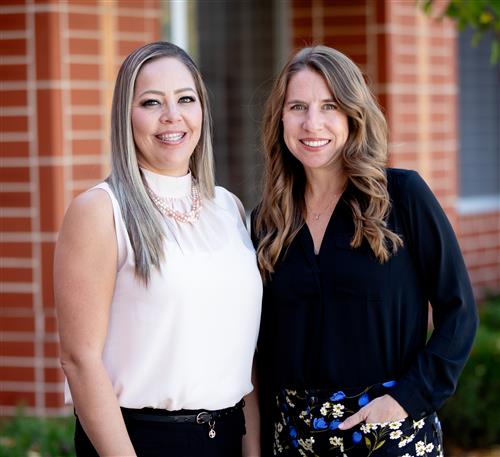
Denver Public Schools (DPS) is deeply committed to identifying, developing, and retaining exceptional leaders who are dedicated to our vision of ensuring every student thrives. To support this commitment, we use the Leadership Investment Framework for Talent (LIFT)—a powerful tool designed to foster professional growth and leadership at all levels.
In LIFT, every team member is recognized as a leader, regardless of whether they manage others. This framework establishes a shared vision and common language for leadership across DPS, clarifies expectations, promotes accountability in goal achievement, and encourages continuous performance discussions to celebrate successes and identify growth opportunities.
The LIFT evaluation process is applied to all non-union central office employees, reinforcing our commitment to leadership development and excellence.
Eligible employees:
- Non-union (unaffiliated) Central Office team members
- Team members who report to a Central Office manager
- Team members funded by a Central Office budget
-
The Components of LIFT
The LIFT framework consists of two main areas (goals and competencies) in which team members are evaluated on every performance year. Each area is weighted equally with goals at 50% and competencies at 50%.
Click on each Framework Component listed below to view more detailed information.
LIFT Component Accordion
-
LIFT Goals
Goals are aligned to district and team priorities, provide a road map for the work we are engaged in and set deadlines and milestones for completion.
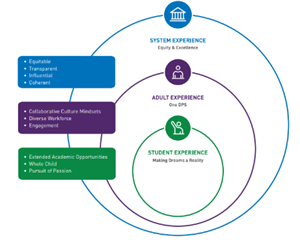
Goals are created annually at the beginning of the performance cycle (July/August). Each goal is rated during the end-of-year evaluation.
In collaboration with your manager:
- Set 2-3 individual goals. Narrow your focus and set goals that are aligned with your Team's overall goals/areas of focus or your Department's priorities - depending on how you department is organized
- Identify:
- Initiatives/actions you will take to accomplish your goal
- Metrics/measurements - how you will know you achieved your goal
- Progress monitoring plan - data you will collect and when you will collect it. Who you will engage with for collaboration or support
-
LIFT Competencies
Competencies are the knowledge, skills and abilities, and other requirements that are needed to perform our roles successfully and how we go about our work.
The Framework includes five broad Competency Groups of leadership focus. Each competency group is rated during the end-of-year evaluation.
- Personal and Values Leadership
- Vision and Strategy Leadership
- Operational and Organizational Leadership
- People and Culture Leadership
- Community and Equity Leadership
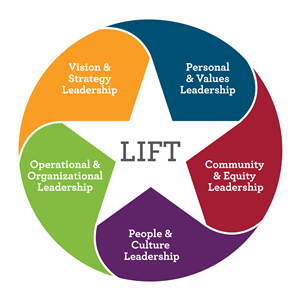
Competencies by LIFT Level
Use the Differentiation Grid to help you identify employee LIFT level.
-
LIFT Drivers
Each competency is further defined through its corresponding DRIVER. There are 18 in total. Each driver represents a specific area of leadership.
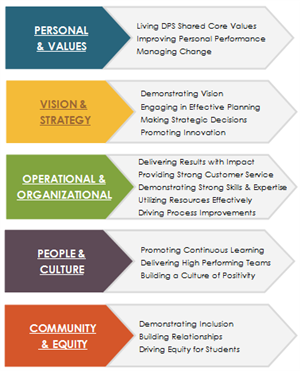
-
Career Stallers
The Career Stallers are the flip side of the coin. Examples of things that will hold us back or make us less successful. These are important to review. Many times we can look at these stallers and identify one or more areas to focus on for growth and development.
Career Staller example for Leader of Self:
CONTACT US
-
Office of Talent
1860 Lincoln Street, 9th Floor
Denver, CO 80203Marlyn Ruiz
Site Manager



